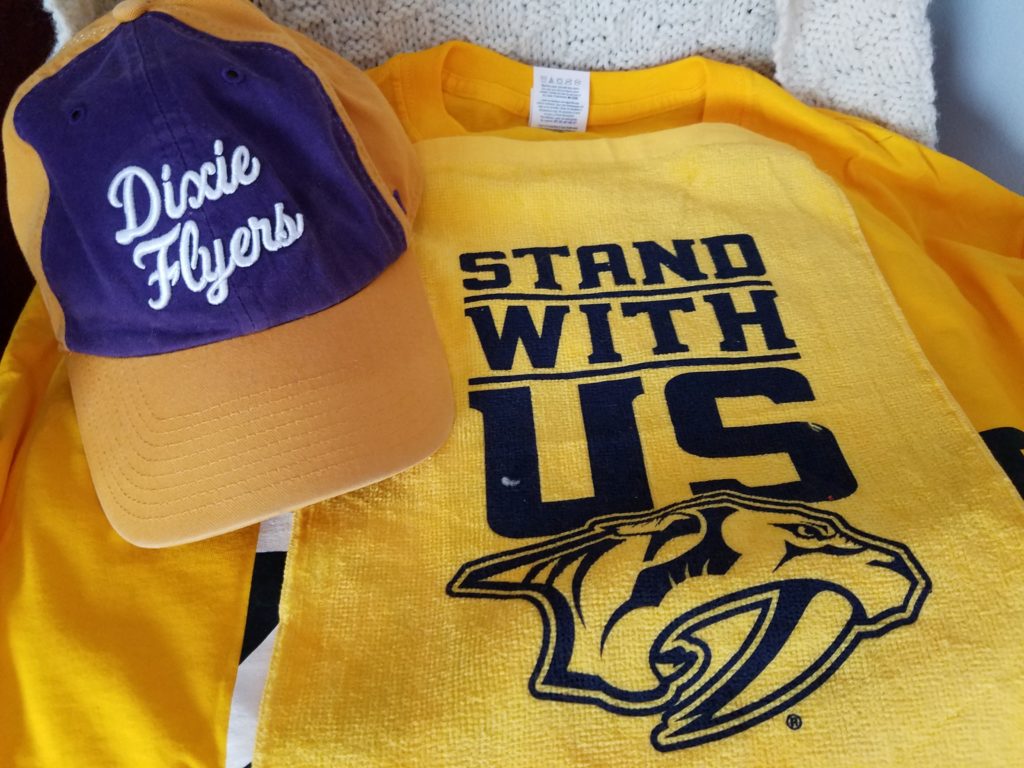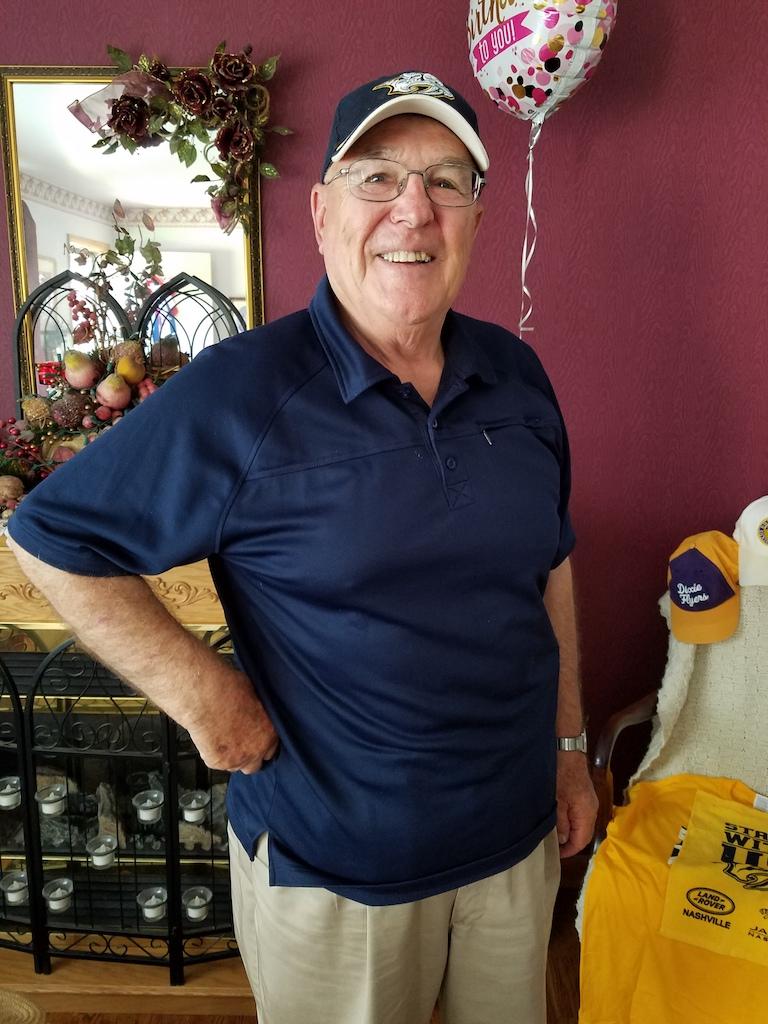
The crowds often numbered in the hundreds — or, on a good night, perhaps a few thousand — sitting right up next to the ice in Nashville’s Municipal Auditorium.
The opponents had names like the Worcester Warriors and the Roanoke Valley Rebels.
And instead of international TV audiences for the Nashville Dixie Flyers, there were only local broadcasts. Fragments survive on the internet.
Don Graham remembers. He was a winger for the Dixie Flyers during their first two seasons, starting in 1962.
“The fans were just great,” he recalls. “They really were. And it hasn’t changed.”
As the Nashville Predators make their first-ever run through the Stanley Cup Finals, their bandwagon grows more crowded by the day. But there are a few fans who can trace their enthusiasm back further — to the first professional team to play in Nashville: The Dixie Flyers, who took the ice nearly four decades before the Preds.
That’s when Middle Tennessee’s love affair with hockey all began.
Graham arrived in Nashville at age 20, after playing in Ontario and Philadelphia. His initial impression: This was a far rougher place.
“First thing I learned when I came down is, you take the blade of your stick and you sharpen the toe. Use a rasp, sandpaper, and then when you got close to a guy, you could slap him in the head with it and cut him open,” he says. “So, it was tough, and we didn’t wear helmets. We had no mouthpieces. Just sharp sticks.”
The Dixie Flyers played in the Eastern Hockey League, two levels below the NHL.
The rink in Nashville and many other venues was shorter than regulation. There were only 13 players on a roster. The pay was about $150 a week.
Still, Graham was sorry when he was transferred to Connecticut in 1964.
“It was fun,” he says. “It was a lot of fun. I really enjoyed it. I really didn’t want to leave Nashville, but I had to go where the money was back then.”
The Dixie Flyers were primarily people like Graham — Canadians who hoped to earn a living playing hockey at a time when there were just six teams in the NHL. In Nashville, hockey was a northern novelty.
Municipal Auditorium was the city’s only ice sheet. Fans sat close. No glass separated them from the action. In fact, there wasn’t even a penalty box.
“They had two chairs set up. Just in the stands. Just two chairs sitting there,” remembers Cathy Maxwell Hixon. The Franklin woman became a lifelong hockey fan by attending Dixie Flyers games those first seasons. Her mother was secretary to the team president.
“It was just exciting, you know, for an 11-year-old kid who really didn’t know much about hockey. I was more of a baseball kid. … But it was exciting. It was fast. And the guys would fight. You just didn’t see anything like that.”
The Dixie Flyers’ best years were 1965-1966 and 1966-1967. That’s when they won back-to-back EHL championships. The franchise folded four seasons later.
Only a few players ever made it to the NHL. Several instead opened businesses in Middle Tennessee. Defenseman Flo Pilote owned a bar called the Penalty Box. Ken Murphy, a team captain nicknamed Red, went into construction.
Hixon says some of those former players were at her mother’s funeral services last year.
“When they quit playing, they stayed in Nashville. They didn’t want to leave.”
That describes Don Graham. After leaving the Dixie Flyers, he played professionally just one more season before hanging up his skates and coming back to Middle Tennessee.
He settled in Antioch, and his stepson was one of the first kids in the region who grew up playing hockey. Graham still drops in at the nearby Ford Ice Center.
“I go out there, and I watch the youth hockey and I talk to some of the kids. I had one little fellow out there, I showed him a different way to lace up his skates, and he really liked it. He liked the way I did it, so…”
In his home, Graham keeps an assortment of Dixie Flyers memorabilia. He lays them out alongside a Predators rally towel and the lucky Preds cap he’s been wearing throughout the playoffs.
Graham feels close to the Western Conference champions but won’t claim any part in their success.
“Well, I didn’t do a whole lot. I think I would put the fans number one.”
A fan base that began 55 years ago, rooting for Dixie Flyers like him.
9(mda2nzqwotg1mdeyotc4nzi2mzjmnmzlza001))

